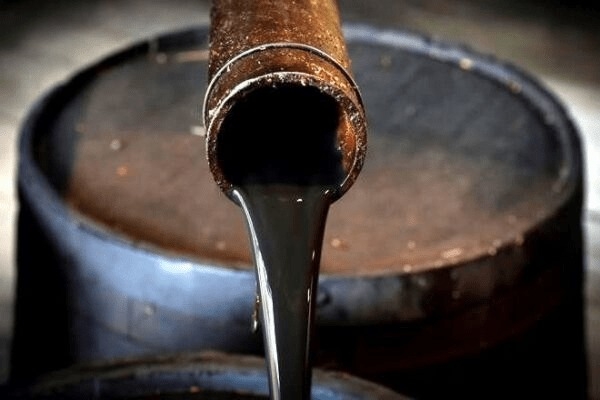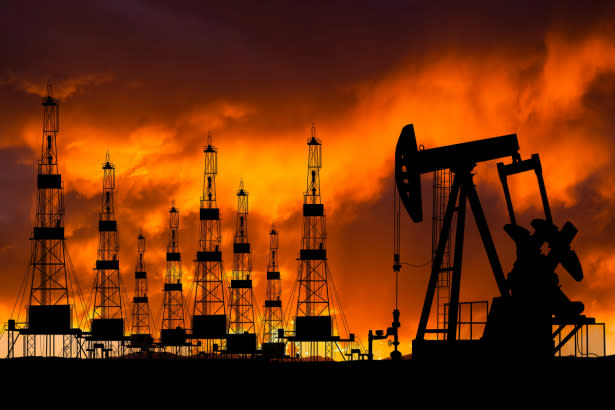On Reserve Bank of India’s (RBI) likely action, Chowdhury said it would only watch the evolving scenario and is unlikely to take any action at this point in time….writes Venkatachari Jagannathan
Senior Economists are in a wait and watch mode as to the impact of Israel – Hamas war on the Indian economy while agreeing there may be a crude oil supply challenge if the war spreads across West Asia.
They said it is a bit early to comment on the impact as the situation has to be monitored.
“In the worst case, there is also a likelihood of the conflict spreading across West Asia and involving several nations. That may lead to further supply challenges in crude oil where supply cuts by OPEC+ (Organisation of Petroleum Exporting Countries and other oil producing countries) have already led to a rise in global prices,” Suman Chowdhury, the Chief Economist and Head of Research, Acuite Ratings & Research Ltd told IANS.
Chowdhury said with the rise in geo-political conflict, the global economy and trade may face further slowdown with a resurgence of inflation risks and higher volatility in the global markets which in turn can have an adverse effect on the rupee.
“However, the direct impact of the conflict is going to be limited as Israel’s trade with India is a little over $10 billion with exports to Israel at $8.5 billion and imports at $2.3 billion in FY23,” Chowdhury said.
On his part Madan Sabnavis, Chief Economist, Bank of Baroda told IANS: “The economic impact will be seen through oil price first followed by currency.”
On Reserve Bank of India’s (RBI) likely action, Chowdhury said it would only watch the evolving scenario and is unlikely to take any action at this point in time.
“As RBI gets more watchful, bond yields will stay high. Inflation impact will be seen on the Wholesale Price Index and not Consumer Price Index. As retail fuel prices will not be changed, higher crude prices will show on the oil marketing companies or fiscal if the government absorbs the same,” Sabnavis said.
“However, it will (RBI) endeavour to maintain the system liquidity on a tighter side through tools like OMO (open market operations) sales which may have an impact on bond yields,” Chowdhury said.
“Indian government may also take mitigating steps to cool down the prices of essential commodities in case the conflict expands to a full fledged war in West Asia and new supply bottlenecks emerge,” Chowdhury added.
On the other hand the gold prices are expected to go up due to the war.
Jayantilal Challani, President, Madras Jewellers and Diamond Merchants Association and a partner in Challani Jewellry Mart told IANS that the price went up on Saturday due to the war.

Indian Oil Firms to take a hit
High crude oil prices will weaken the profitability of the country’s three state-owned oil marketing companies — Indian Oil Corporation Ltd, Hindustan Petroleum Corporation Limited (HPCL) and Bharat Petroleum Corporation Limited (BPCL) — as they have limited flexibility to pass on higher raw material costs to consumers due to the forthcoming Lok Sabha elections in May 2024, according to a report by Moody’s.
The report points out that the market margins of the three oil companies — the difference between their net realized prices and international prices — have already weakened significantly from the high levels seen in the April-June quarter of the current financial year.
Marketing margins on diesel turned negative since August while margins on petrol have narrowed considerably over the same period as international prices increased.
The earnings of the three OMCs, all of which enjoy a Baa3 stable rating, will weaken in the second half of fiscal 2024 if oil prices remain elevated at current levels of $85/barrel (bbl) – $90/bbl. Still, full-year earnings will remain comparable with historical levels at this price range, the Moody’s report states.
The OMCs, however, will start incurring EBITDA losses in the second half of fiscal 2024 if crude oil prices increase to around $100/ bbl.
Nonetheless, we believe high oil prices are unlikely to be sustained for long as global growth weakens, the report adds.
The increase in raw material costs comes after the price of crude oil jumped around 17 per cent to more than $90/bbl in September, from an average of $78/bbl in 1Q fiscal 2024.
On the positive side the report states that the credit metrics of the OMCs will remain well positioned through fiscal 2024. The oil companies will maintain their credit quality, helped by strong balance sheets. Additional capital from the government, if made available, will further support their credit metrics.
Among the three companies, HPCL has the lowest buffer to tolerate a material increase in crude oil prices because of substantial marketing losses in fiscal 2023 which resulted in borrowings, according to the report.












